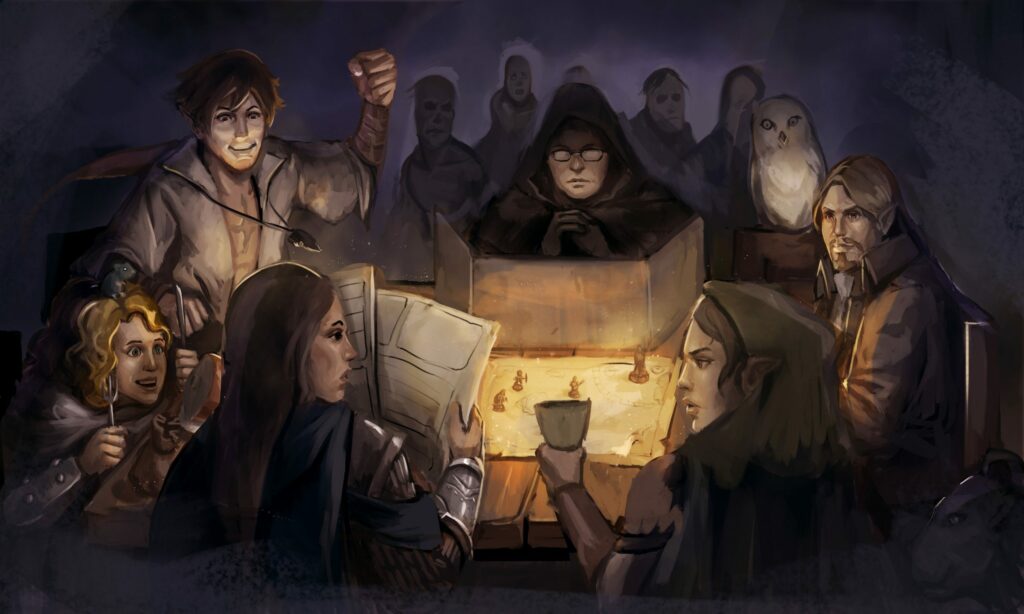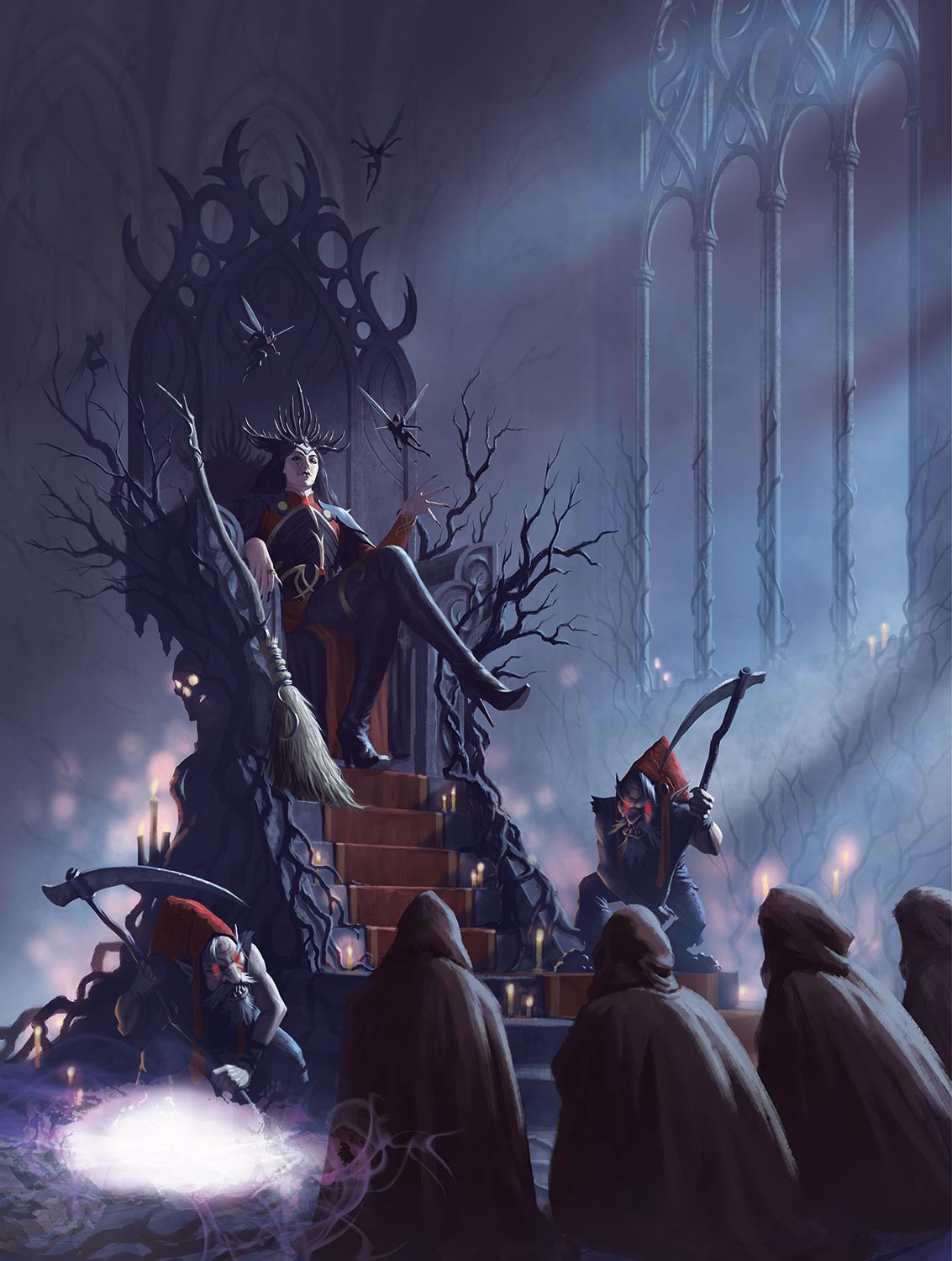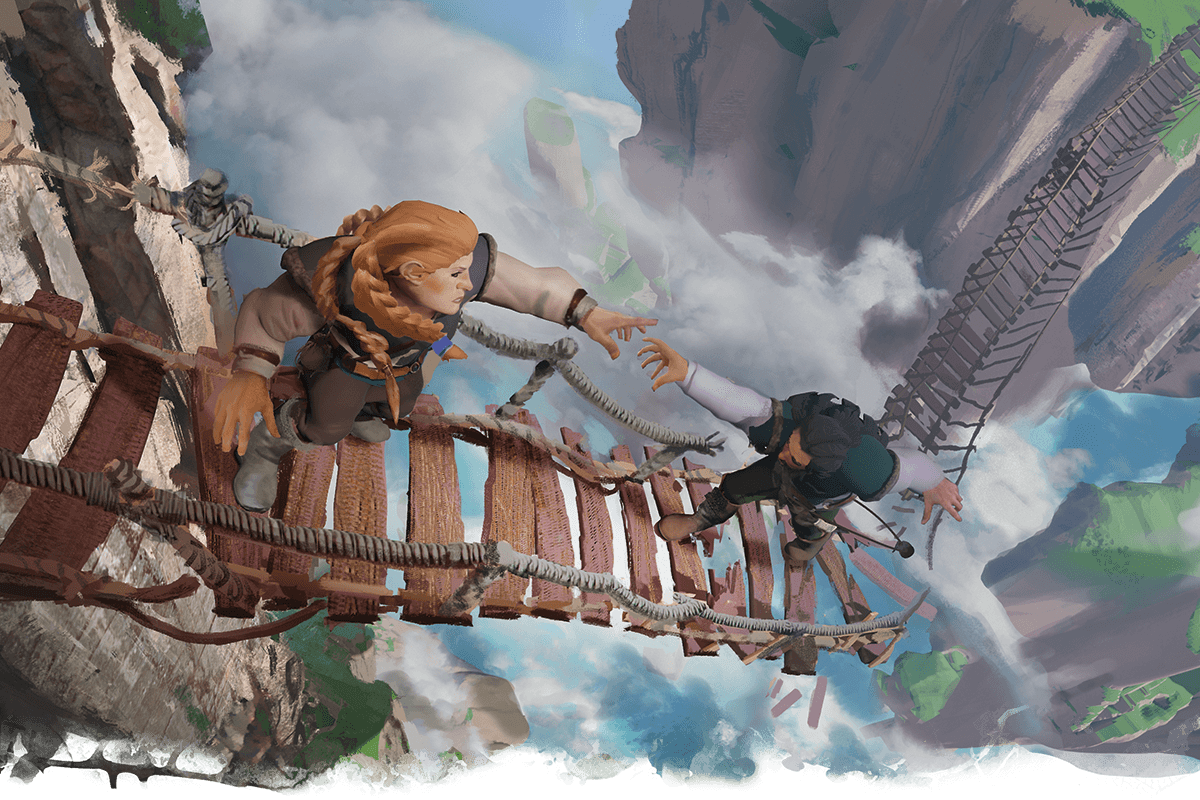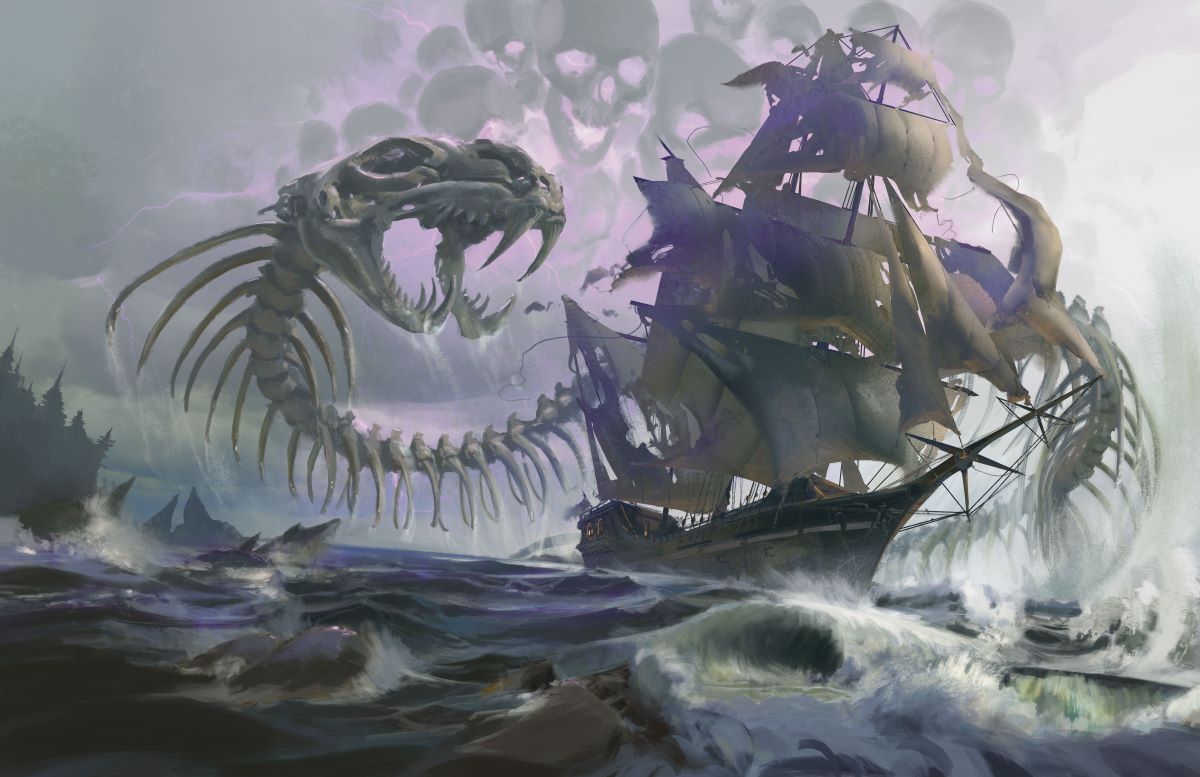
New DM Handbook: A Fistful of Rules
There have been a number of little topics that I’ve been meaning to talk about, but none of them are big enough to warrant their own article, so I’ve decided to compile them here.
Resource Management
 For every type of game I’ve ever played, on every platform, resource management has been a tricky proposition. On the one hand, you want your players to always be considering what resources they have, and have to take that into account as a part of their survival. On the other hand, you don’t want to waste time and frustrate them by forcing them to keep track of resources they can easily access an abundance of.
For every type of game I’ve ever played, on every platform, resource management has been a tricky proposition. On the one hand, you want your players to always be considering what resources they have, and have to take that into account as a part of their survival. On the other hand, you don’t want to waste time and frustrate them by forcing them to keep track of resources they can easily access an abundance of.
At low levels, little things like ammunition, equipment, food, lodging, and the whatnot, need to be carefully considered. What’s more important? Having enough arrows to make it through the next quest, or stocking up on food so you don’t starve before you complete it? Is sleeping at the nicer place, or having the finer ale, really worth it?
At higher levels, those things become significantly less important, unless the players choose to get more top shelf versions of. If the party is pulling in hundreds or thousands of gold pieces per dungeon or quest, especially those that last a day or two, making sure that they have enough arrows and food on hand is just petty. One to two gold pieces isn’t going to mean a whole lot to them at that point. At that point, resource management is more about buying magical equipment and potions, saving up for bases of operation, and managing staff, which tend to range between hundreds of gold pieces and thousands of platinum pieces.
My philosophy (if it wasn’t obvious) is to adjust the levels of resource management to how many resources the players have. There can be a number of ways to do that, though. You can introduce magical items, like a quiver or bow that magically creates arrows. You can also offer higher levels of arrows (+1, +2, +3, etc) for a lot more money, which continues the resource management balance. You can include narrative reasons, like the party gets free lodging at certain places because of their heroism amongst the people, or the owner feels like their patronage will get them more business amongst the commoners. Or, you can just ignore it. If you don’t bring it up, the players may just stop doing it.
Carrying Capacity
 Kinda related to the above, carrying capacity is always a resource management issue. Even under the most ridiculous situation of you having a party of six players, each of them with a Bag of Holding of their own, that’s 4,080 pounds (assuming an average strength of 12). By themselves, money weighs 50 coins/pound. So, unless your party plans on just carrying money around (which admittedly would be an insane 204,000 gold pieces), they have to balance their weapons, armor, gear, coins and gems, spell components, and other equipment that they take with them, not to mention some extra room to be able to pick up new items and money.
Kinda related to the above, carrying capacity is always a resource management issue. Even under the most ridiculous situation of you having a party of six players, each of them with a Bag of Holding of their own, that’s 4,080 pounds (assuming an average strength of 12). By themselves, money weighs 50 coins/pound. So, unless your party plans on just carrying money around (which admittedly would be an insane 204,000 gold pieces), they have to balance their weapons, armor, gear, coins and gems, spell components, and other equipment that they take with them, not to mention some extra room to be able to pick up new items and money.
Using Professions in the Adventure
This actually came up in a discussion amongst the Nerdarchy writing staff on ways to make the game more than just talking, shopping, and fighting. Taking up a profession is a way to make things more interesting. And not just how the Player’s Handbook suggests, but including it in the actual adventure. Suddenly, the players now have entire avenues open to them in terms of adventuring and of revenue. Maybe a player chooses to be a tailor. Now, if they want to make an exceptionally nice dress out of rare silk that’s only produced by Driders, they have to venture out into the Underdark. The players have just generated their own quest, with their own buy in. Or as they’re traveling through a mountain pass, they stumble across a gold mine, the party can take a short rest while the miner digs out a little gold. Maybe they use that to stake a claim and set up a little operation in their down time. Eventually there’s a little gold mining town that’s built up around it (assuming the players don’t invest in building the town themselves), and they can use it as a place they can literally call their own. For the DM, it’s a great narrative tool which can be great for call backs, especially for future campaigns run out of the same world. Future parties can come across the city or go there because it’s become a major metropolis and another place to base adventures out of. The possibilities are endless.
Living in the Gray
I haven’t been a part of the hobby long enough to say one way or another, but from the observations I’ve made so far, a lot of campaigns exist fully in the hero scale, while some are specifically evil campaigns. Admittedly, that does give players a lot more room to make their choices, because they kinda know the DM is just going to keep them in a certain path, and mostly throwing them up against the opposite faction. Those aren’t the only types of stories. Those aren’t even the only kinds of protagonists. You also have the (at best) morally ambiguous anti-hero. Using a seafaring scale, you have navies, privateers, smugglers, buccaneers, and pirates, and each of them with varying degrees of morality and nobility. Whether on land or in the water, putting players somewhere in the gray means they have to be more deliberate with their choices. If they’re not always put in front of situations where they’re supposed to be good guys (or bad guys), they have to do a better job of navigating their way through situations and social encounters.
 If, for an example, they’re mercenaries, they might choose to be selective with the jobs they take. Maybe the local government allows for them to operate because they have enough positive value to leave them alone, but if they’re contracted to kidnap someone for a lot of money, they have to consider if that’s a road they want to take. Or maybe they’re contracted to steal something but they find out mid-way through that it’s a dangerous magic item, which would spell doom if it got in the wrong hands. They have to decide right then and there if they want to risk giving it to someone who is dangerous, or if they want to risk crossing someone who is deadly and evil.
If, for an example, they’re mercenaries, they might choose to be selective with the jobs they take. Maybe the local government allows for them to operate because they have enough positive value to leave them alone, but if they’re contracted to kidnap someone for a lot of money, they have to consider if that’s a road they want to take. Or maybe they’re contracted to steal something but they find out mid-way through that it’s a dangerous magic item, which would spell doom if it got in the wrong hands. They have to decide right then and there if they want to risk giving it to someone who is dangerous, or if they want to risk crossing someone who is deadly and evil.
Maybe not every situation is going to have a clear cut good way of doing things. Sometimes no matter what you do, it’s going to be a shitty outcome. “The lesser of two evils” is a figure of speech for a reason. Maybe blend the good and the bad into each side. Dragon Age: Origins did an amazing job with that. early every decision you made felt icky. You always knew everyone was going to suffer, but you also knew a lot of good would happen, too. It was just a matter of what balance you as DM felt was acceptable.
That should be enough to consider for now. Stay nerdy.
Related articles
[amazon_link asins=’0786966092,B06X419QQS,078692845X’ template=’ProductCarousel’ store=’nerdarchy-20′ marketplace=’US’ link_id=’8d0bbb07-0bbd-11e7-b9fe-fdf76d2c305b’]












No Comments